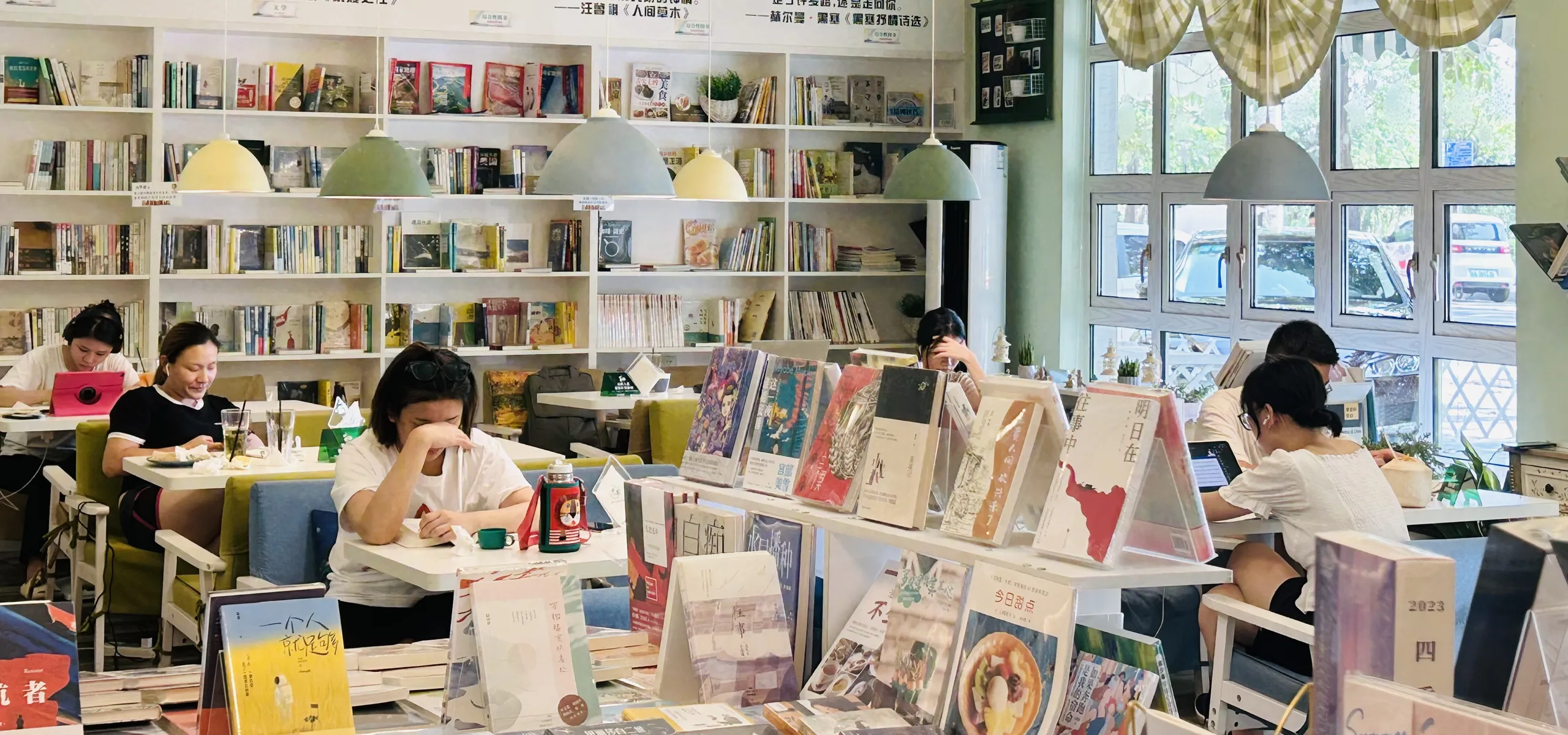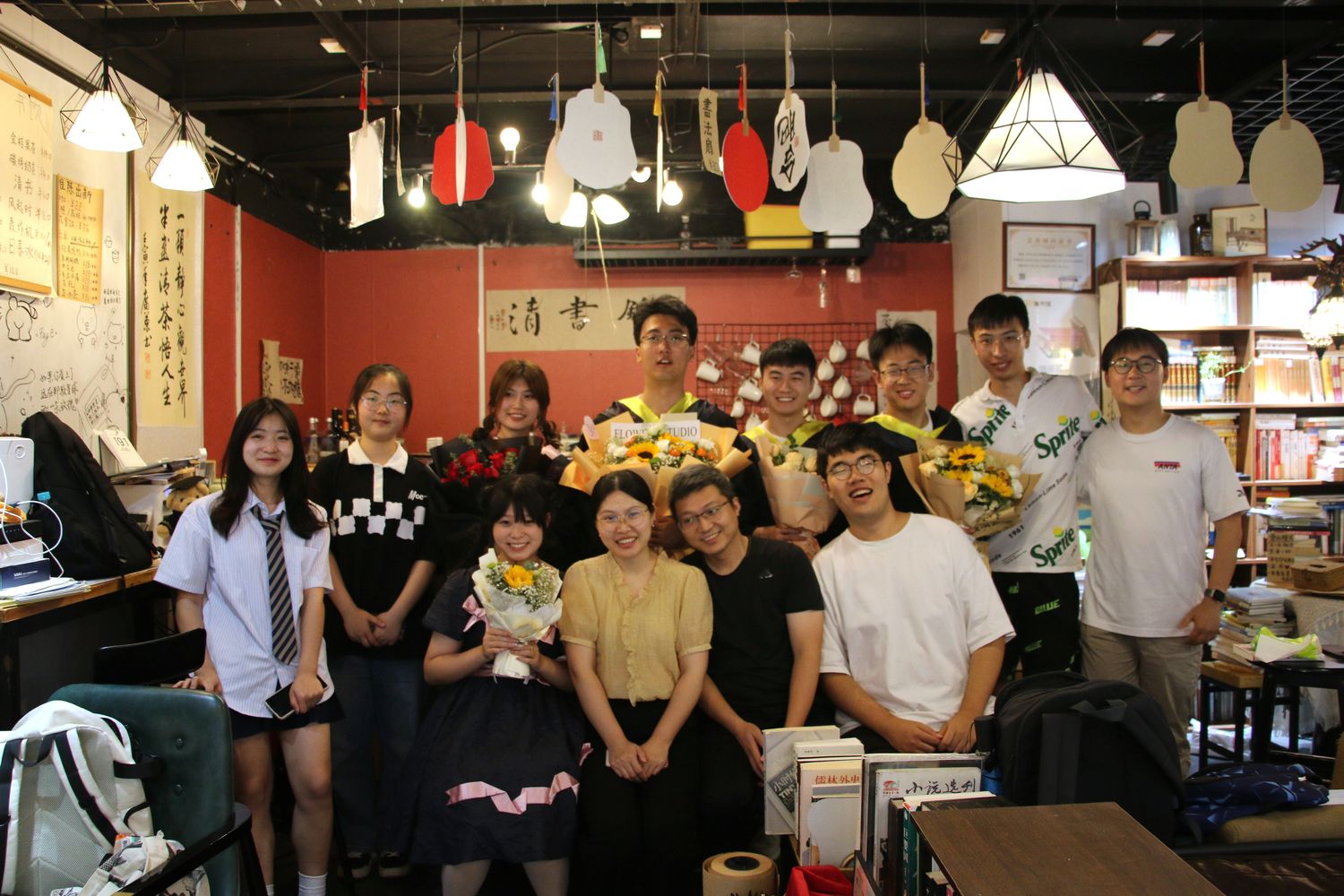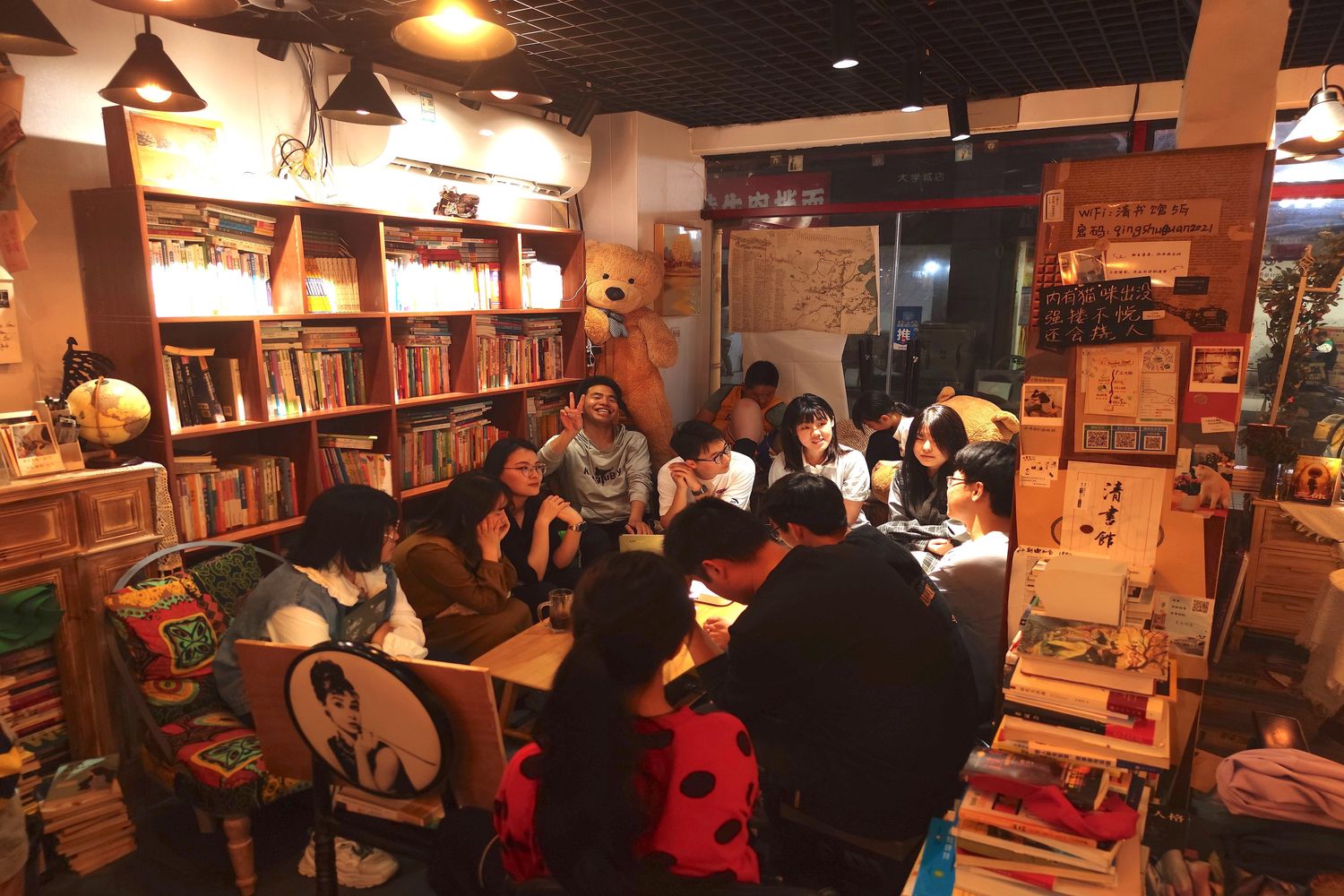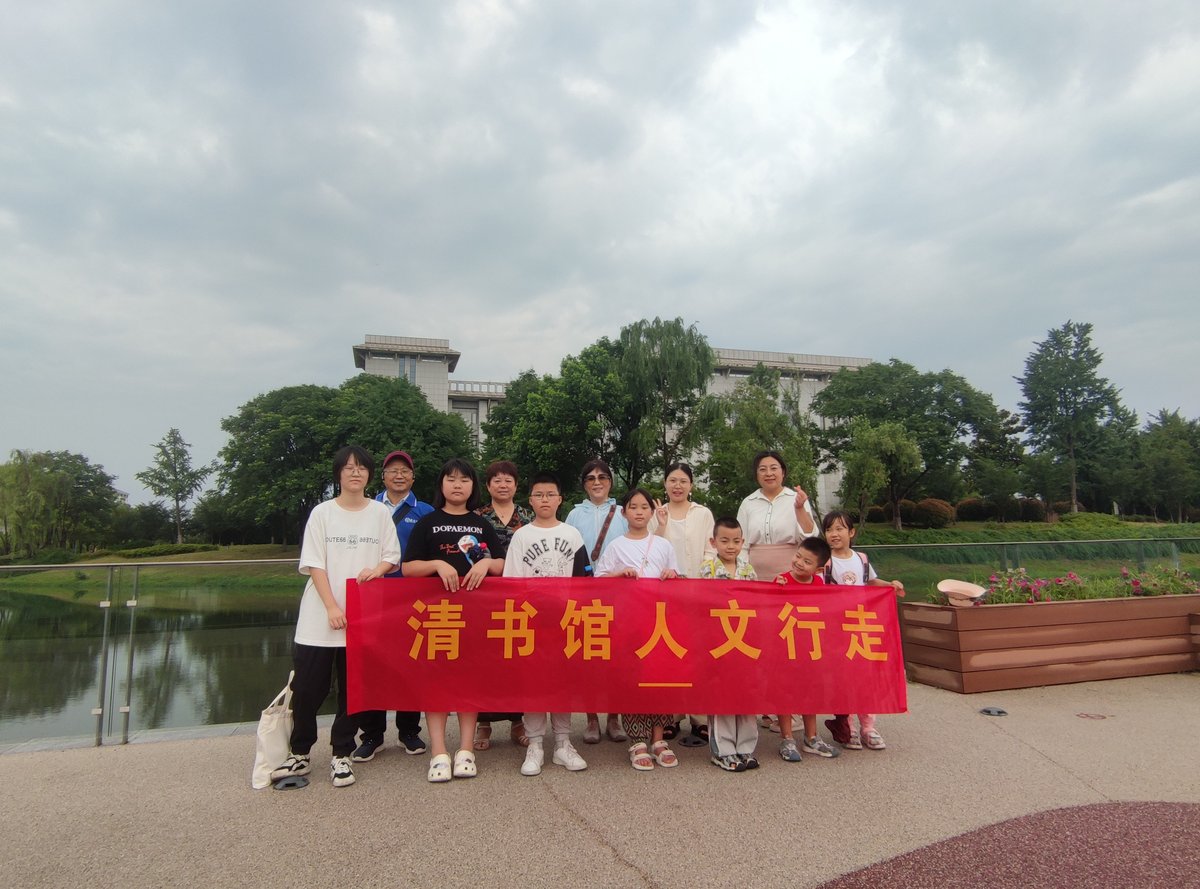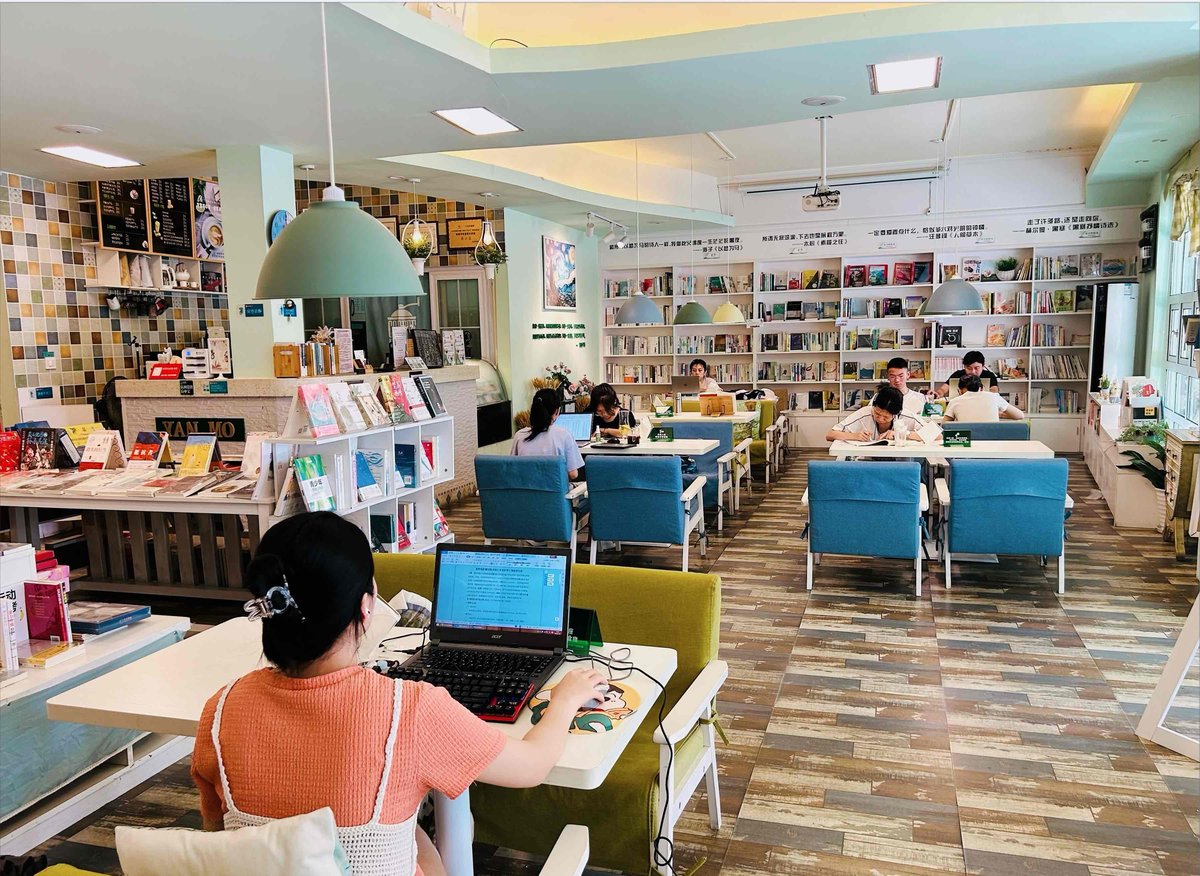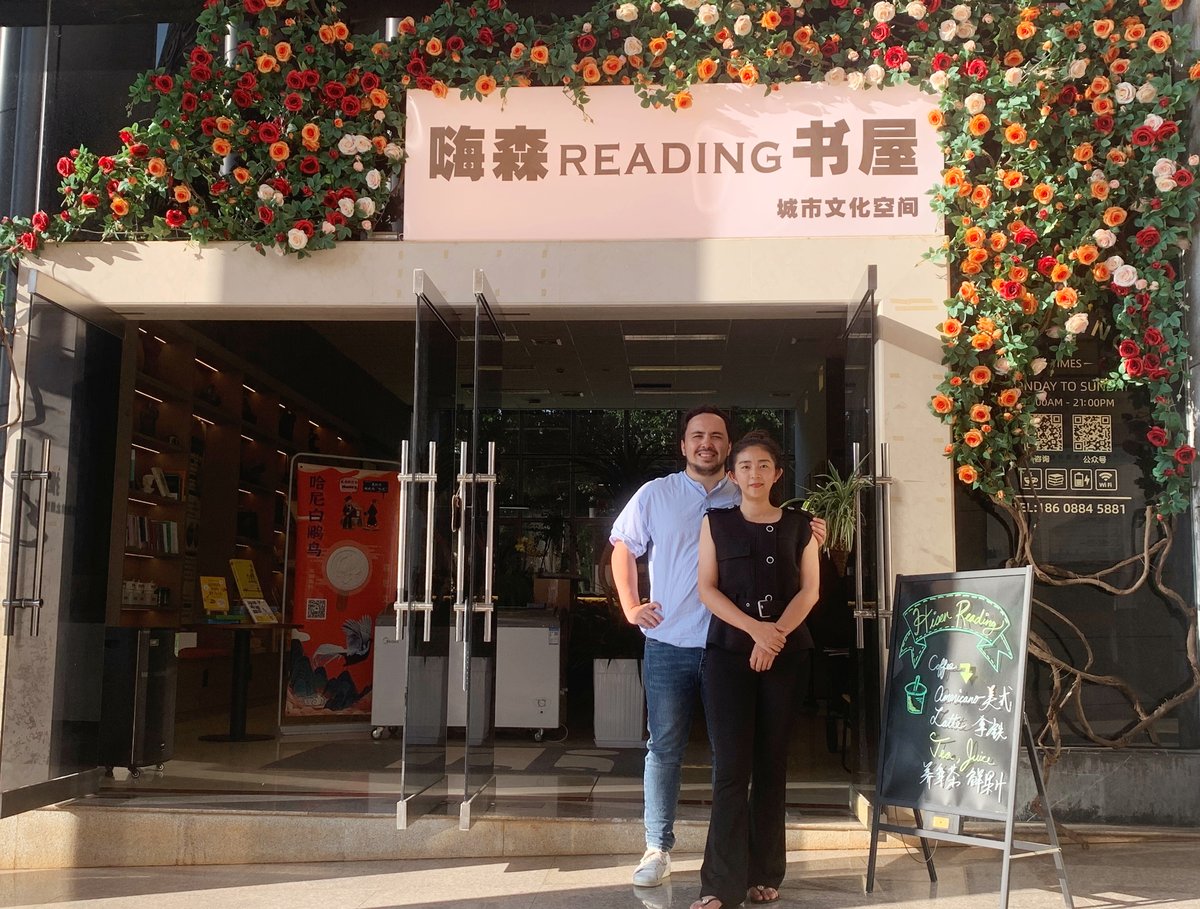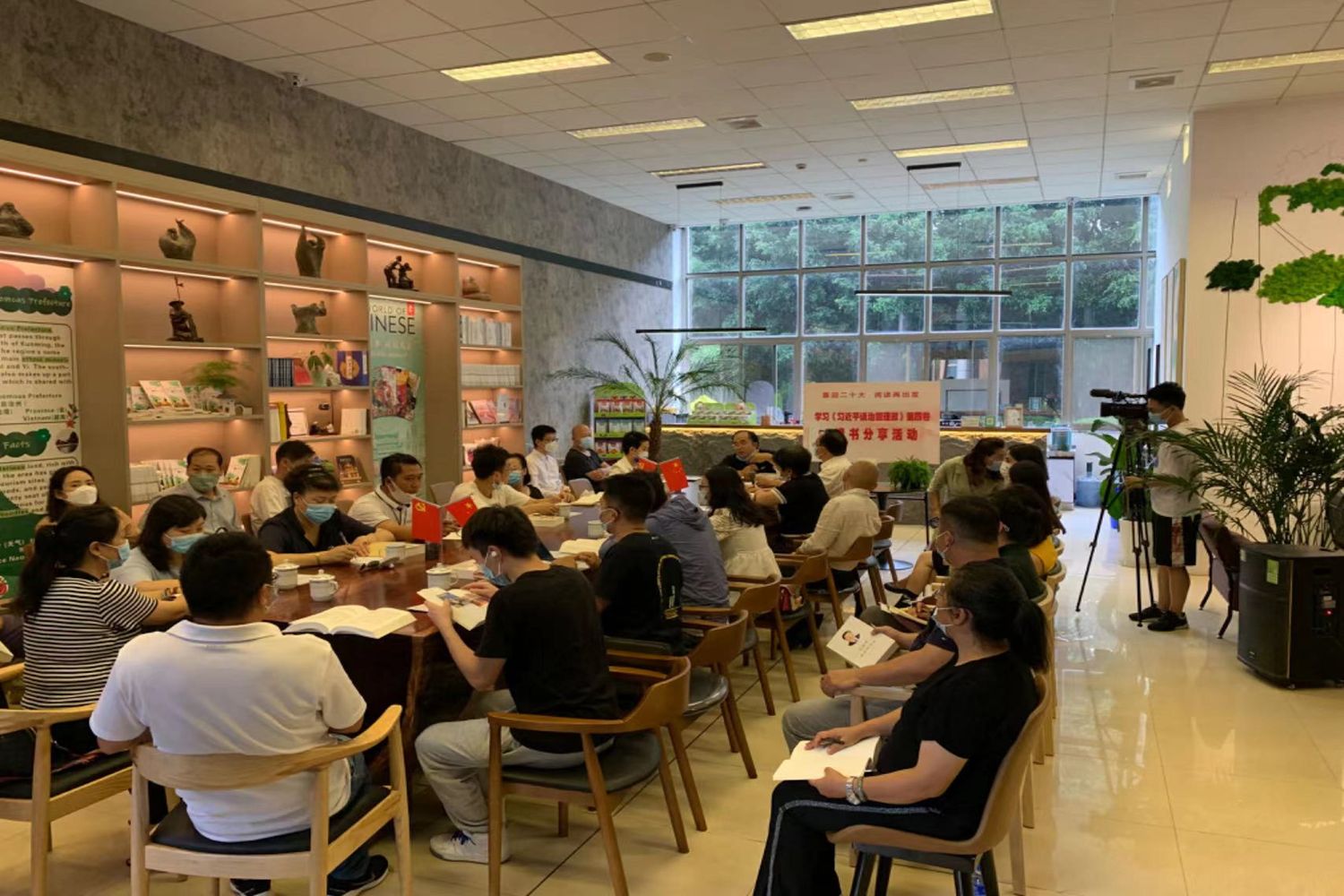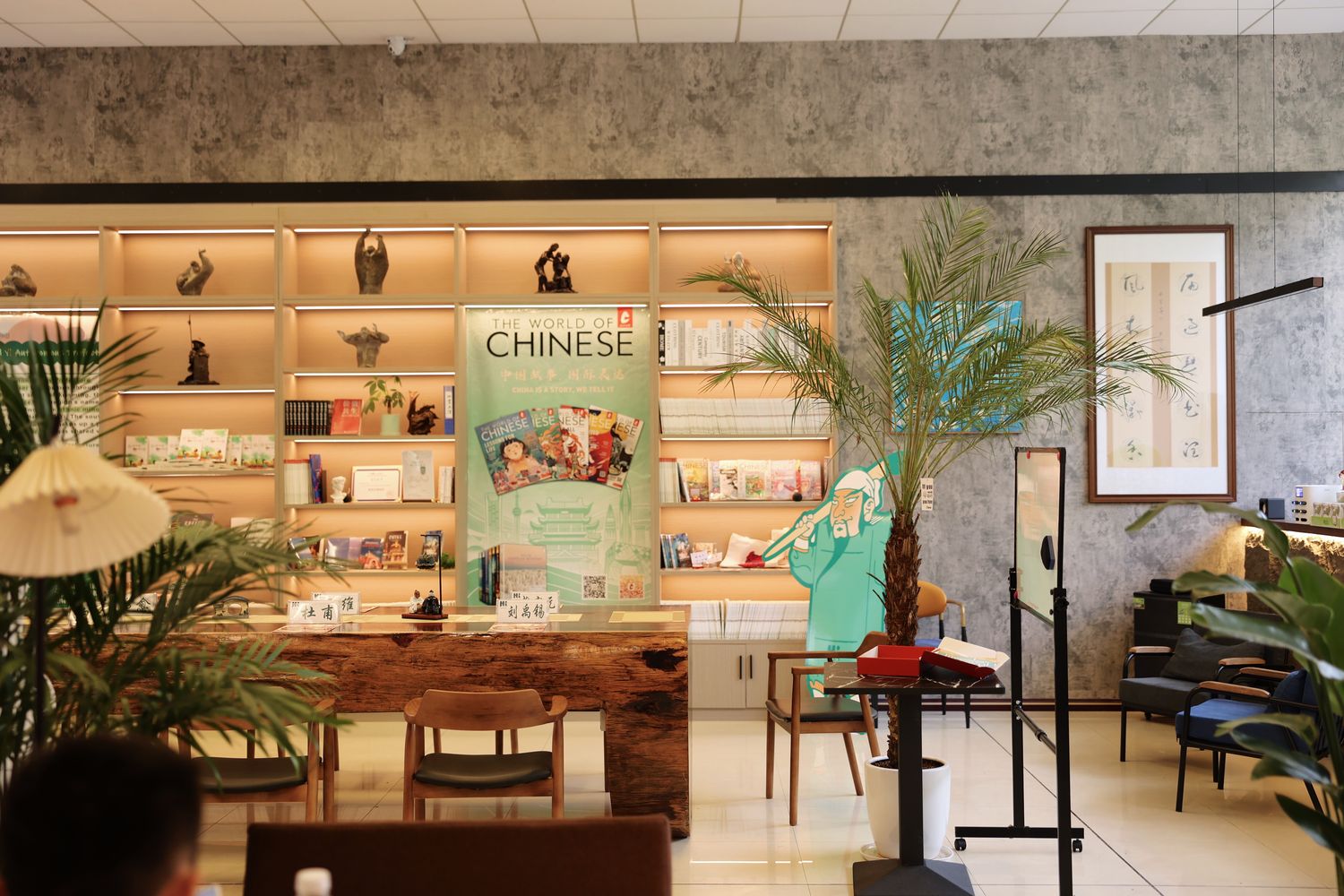Benefiting from government subsidies and close-knit communities, independent bookstores try to compete and make profit in China’s smaller cities
It’s 11:27 p.m. on a Monday, and Tsing Bookstore is still filled with the noise of children playing. “Sorry, just give me a second,” owner Lu Qingqing tells TWOC over the phone as she tends to a stray child whose parent is lost somewhere in the 130-square-meter store.
Lu, 33, and her husband Chen Ran co-own this independent bookstore in Hefei, the capital of the south-central Chinese province of Anhui. Apart from selling books, their store regularly hosts events for different holidays, often culminating in a hot pot meal or barbeque at the end of the day and movie nights for college-aged students, their largest customer demographic.
Though bookstores exist everywhere, China’s small towns may be where they’re needed the most. As China’s income per capita and consumer spending have risen, “cultural poverty”—the idea that cultural and educational resources have not kept up with economic development— has been a growing concern for some residents and policymakers, especially in small cities and rural villages. Bookstores that promise to lift locals out of cultural poverty, become tourist attractions, and even help preserve local traditions and lure young people back to their hometowns are getting enthusiastic support on social media and government benefits like tax breaks—but it remains a balancing act for owners to make revenue while finding a likeminded customer base in their local areas.
Before opening their store in 2021, Lu and Chen both worked in the real estate industry, where their combined salary reached millions of yuan a year. “The pressure was also incredibly high,” Lu tells TWOC, describing grueling working hours and fierce competition for clients. “I quit without knowing what I would do next—I just knew I needed a break from that career.”
But making money as a bookstore outside of China’s biggest cities is a challenge. Lu and Chen dipped into their savings and decided they could survive for a few years with no profits. Starting their business during the Covid pandemic made it especially hard to make money, with the nearby colleges often locked down for months at a time. Some days they made no sales at all, Lu claims.
In rural areas and smaller cities, locals may have a harder time being persuaded to spend money on education or cultural enrichment while still struggling to meet basic survival needs. In China, rural households only have 40 percent of the disposable income of urban households, and spend less than half of that on education compares to their counterparts in China’s ten top-tier cities.
As a result, bookstores can’t rely on literature or culture alone to make money. “I actually don’t make any profit at all from selling books,” says Lu, explaining that she normally sells fewer than 20 books a month, at just 15 percent above the cost she pays for them. Instead, more than half of her monthly sales come from selling drinks via the coffee shop also in her store, where an americano runs for 18 yuan and a latte runs for 24 yuan—but one can get drinks at half-price with a membership.
The bookstore also makes a profit from organizing events like guided city walks that Lu leads. She typically takes groups of five to ten people on a tour of historic areas, like Hefei’s “Old Town” or even the city of Nanjing, at the cost of 99 yuan per person including lunch and tickets to tourist sites; and she has plans to go further afield to Hong Kong and Paris.
In Nanning, Guangxi, a so-called “third-tier” city in southern China with a population of nearly 9 million, 43-year-old Momo, who asked to be identified by a nickname, uses a membership program to keep money flowing at her Yan Mo Book Bar, which she established in 2017. “We charge 998 yuan for the annual membership, or you can purchase a per-visit card, such as a 10-time visit card for 138 yuan,” Momo says. With a membership card, one can sit in peace in the bookstore all day without buying anything. Otherwise, Momo stipulates a 20 yuan spending minimum to sit down in the shop.
Momo established her bookstore after 17 years as an elementary school teacher. She describes feeling burned out and unhappy at the lack of advancement opportunities in her job before quitting. Momo relied on savings and support from her family to start the bookstore, renovated Yan Mo in the second year of opening, and increased from roughly 28 to 60 seats so that more customers could sit for extended periods to read, study, work, or simply enjoy a drink.
Though the demographic of rural towns in China is mainly the elderly, most bookstore customers are college students, working adults, and parents with children. Barron (who asked to be identified by his English name), a 33-year-old video editor in Meizhou, a city of nearly 4 million people in southeastern China’s Guangdong province, remembers how he would spend large portions of his childhood in independently owned bookstores as opposed to libraries. “It’s because there was air conditioning,” he says, chuckling. The public library down the street was rundown and underfunded in comparison, Barron says, and the bookstores offered solace from Meizhou’s hot, sticky weather.
He remembers vividly when The Da Vinci Code first came out over 15 years ago—he had stood in the bookstore over two separate afternoons to finish the book. “The library also didn’t carry the latest comic book series,” Barron says.
After Barron moved to the metropolis of Shenzhen during his 20s for work, he began to appreciate China’s largest nationwide chain, the state-owned Xinhua Bookstore, and first-tier cities’ libraries. “The power of first-tier cities is truly unbeatable—Xinhua would update their inventory at a much more aggressive rate,” Barron tells TWOC. Libraries in Shenzhen were also better equipped and could offer him the humanities, religion, and history books he actually wanted to borrow, he says. Eventually, he began frequenting an independent bookstore in Shenzhen because they focused on the types of books he enjoyed.
Having since moved back to Meizhou, Barron hopes for more independently owned bookstores to open in his hometown, so that he could read away the afternoon in silence surrounded by the type of books only a quirky independent bookstore would stock for customers like him.
But big chains like Xinhua, even if they do open in small cities, aren’t always direct competitors to independent bookstores according to Huyan Siyue, the 36-year-old co-owner of Hisen Reading in the city of Mengzi in Honghe Prefecture, an agricultural part of Yunnan province. Close to the Chinese border with Vietnam, Honghe is home to 4.4 million people, and the majority of her customers are from the surrounding cities or are out-of-province residents, who value the learning environment that Hisen provides and promotes.
“We provide different services to customers,” Huyan says, arguing that independent bookstores like hers care much more about customers’ experience once they enter the bookstore compared to chain outlets.
There are two Xinhua bookstores close to Hisen, but “the decorations and atmosphere are so lackluster, and customers don’t want to stay in the store for an extended period of time,” Huyan says. “There are many books we sell that a chain bookstore, such as Xinhua Bookstore, won’t carry.”
Huyan resigned from her government job to establish Hisen Reading with her boyfriend in late 2021. Established in partnership with the local government, the bookstore becomes an extension of the couple’s own cultural products company, Honghe Sensi Wenhua, which produces ice cream, coffee, instructional book bundles, and other products related to the local culture. The government provided 186 square meters of long-vacant space adjacent to the local public library and sponsored a portion of their renovation to develop it into a comfortable reading area. In addition to its bookstore services, Hisen Reading also utilizes the space to host various events, including entrepreneur meetups, cultural salons, educational seminars, and company parties.
These government programs designed to foster more bookstores have grown since the municipal government of Beijing announced a set of policies to support the development of physical bookstores in 2018. The Chinese Academy of Press and Publication reported that Chinese people, in 2013, read 4.39 books per capita annually, lagging far behind that of other countries when compared to Korea’s 11 books read per capita or the United States’ 7 books read per capita.
In the years following, many local governments, spanning from Inner Mongolia to Hainan, released their own policies. Key objectives include improved planning and layout of the physical space, increasing the number of rural bookstores, and tax exemptions for bookstore owners. Some benefits Hisen Reading has taken advantage of include subsidized rent and publicity by the government.
Social media accounts are important to small-town bookstores, which the owner uses not only as a form of advertising but also as a way to document the store’s changes and growth over time. Xinhua bookstores may all look the same, but Momo’s brightly lit, cottage-inspired bookstore with a white and pastel green theme differs greatly from Tsing Bookstore, which shows off a black and red theme with gold detailing, employs warm lighting, and retains a vintage feel.
Lu and Chen believe their bookstore also benefits from the community afforded by their small-town location. Situated in the middle of three major colleges nearby, Tsing Bookstore has fostered close relationships with regular customers—Lu even tells some of them the passcode to the door so they can come in outside of business hours, and lock up themselves when they want to leave. “You can even date and find a relationship in our bookstore,” she claims.
Despite the challenges of finding customers and making money in Nanning, Momo still prefers her current life to her previous job as a teacher. For her, opening a bookstore means realizing the dream of recreating the community spaces she used to visit as a child, and she says her customers feel the same. “We hope Yan Mo Bookstore stays open forever,” goes a comment on the store’s Xiaohongshu account—and it’s Momo’s dream to turn her store into one that can serve the community for 100 years or more.
Disclosure: TWOC’s digital content manager, Anson Zong-Liscum, is a co-owner of Hisen Reading.





